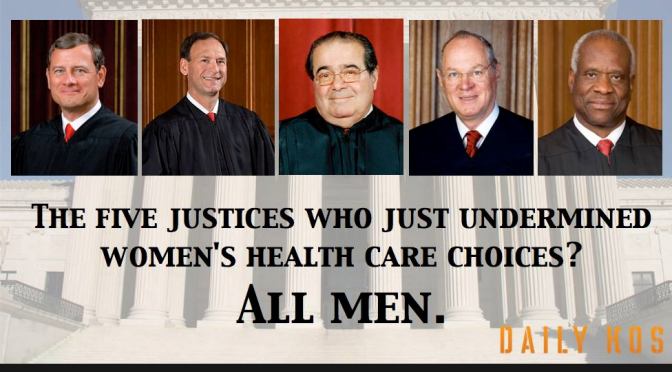The U.S. Supreme Court today ruled that business owners can object on religious grounds to a provision of … Continue Reading ››
SCOTUS Hobby Lobby Decision: A One-Way Ticket to Socialized Medicine?
After lauding the Supreme Court's decision last week to protect digital privacy rights, it's quite ironic that today they've dealt an insurmountable blow to individual rights while favoring corporate intransigence. From the Chicago Tribune, here's the story...
